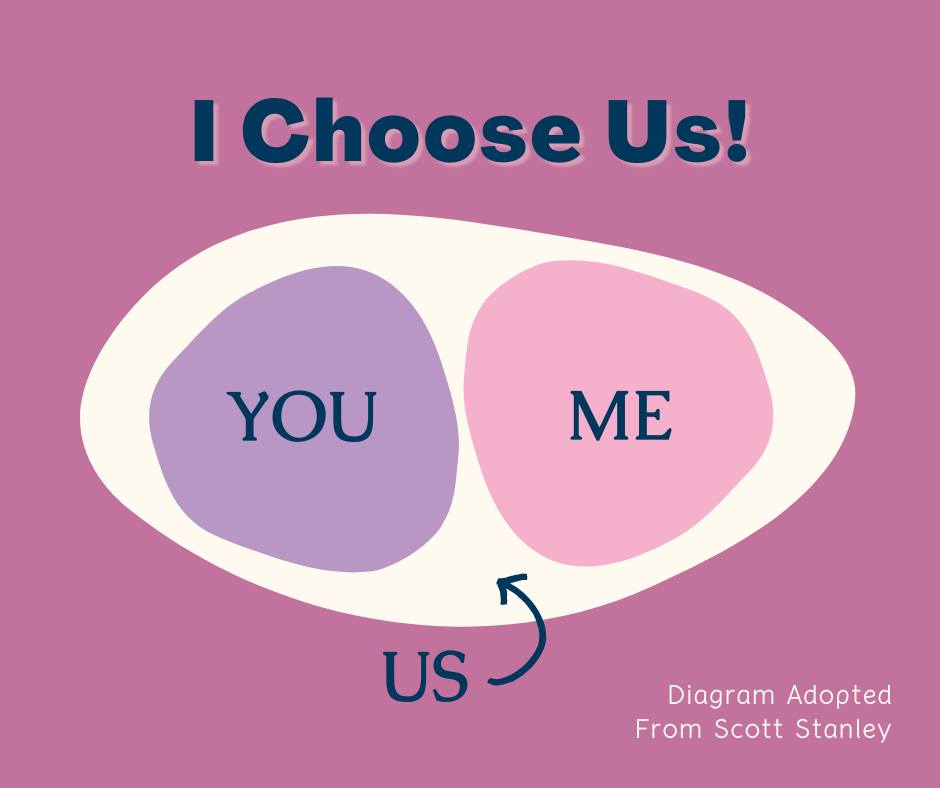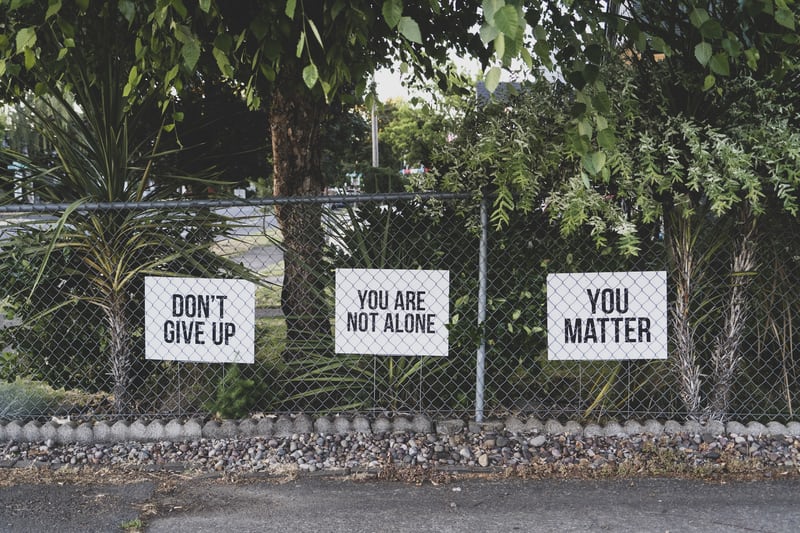I recently got married to my college sweetheart and have been experiencing the wonderful and overwhelming transition that is the #newlywedlife. Learning how to navigate new experiences, roles, and responsibilities together has been both rewarding and challenging at the same time.
Something that has grounded us in this transition has been the “three identities” of marriage, adopted from Scott Stanley.
The three identities consist of You, Me, and Us. As you can see in the diagram, You and Me continue to have their own unique identities in marriage, but the Us fully consists of You and Me while also being a unique entity of its own. The three identities remind us to not become too enmeshed or too detached in marriage.
This conceptualization has practical implications that have been so helpful for us, and I hope that you will find some of them helpful for you too!
Every marriage is unique. In the same way that you and your spouse have different personalities and interests, your marriage (Us) will form a unique personality and interests. Give your marriage the space to become what God intended your special relationship to be.
Cultivate oneness, not sameness. Oneness is not achieved when you try to control or change your spouse to become more like you. Oneness is achieved when you embrace “I choose Us” more often than “I choose Me” or “I choose You.” The beautiful thing is that when you choose what’s best for Us, you are also choosing what’s best for You and Me.
Continue to care for yourself. Keeping in mind what is best for the marriage, continue to pursue the things that bring life and joy to you, such as interests or ministries. Regularly meditate on the truths that you are loved, significant, and valued. As you care for yourself, you can more readily care for your spouse and your marriage.
If you and your partner would like more guidance at any stage in your relationship, please feel free to reach out to our team. You are not alone on this journey. We are here for you and would love to help in whatever way we can.










